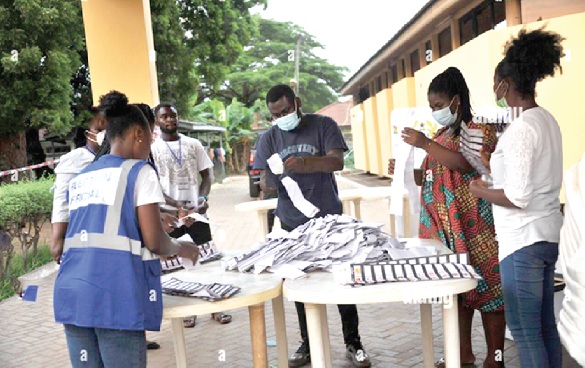
Do we think election outcomes are free and fair?
Ghana has held eight elections so far in the Fourth Republic. With another election coming up, I reflect on how we have judged election outcomes drawing on data from the Afrobarometer survey. I place Ghana’s election into two categories – contested and non-contested.
In contested elections, a party raises substantive issues and completely rejects the outcome, sometimes seeking a legal remedy from the courts. Three elections fit under this definition – 1992, 2012 and 2020.
In non-contested elections, no party raises substantive issues nor rejects the outcome. Four elections fit this definition – 1996, 2000, 2004 and 2016.
The 2008 election is an anomaly. Although the incumbent party raised security issues during the run-off and boycotted the election in Tain, it did not reject the outcome of the overall election.
Do We Think Election Outcomes Are Free And Fair?
The Afrobarometer survey first asked about the freeness and fairness of elections in Survey Round 3(2005) and repeated the question in 2008, 2012, 2014, 2017, 2019, and 2022. Two elections of reference (2004 and 2016) were repeated in the survey cycle. The average is computed for these two.
Ghanaians do not judge all elections the same way. When elections are contested, they tend to judge the outcome as not free and fair (2012 and the 2020). When elections are not contested, they tend to judge the outcome as free and fair (2004 and 2016).
In table two, I show how partisanship, the political party a citizen says they feel close to, shapes the way election outcomes are judged. If a partisan supports a losing party in a contested election the outcome is judged as not free and fair. If the same partisan supports a winning party even in a contested election the outcome is judged as free and fair.
If a partisan supports a losing party in an uncontested election, the outcome is judged as not free and fair. If a partisan supports a winning party in an uncontested election the outcome is judged as free and fair. In essence, when partisans win an election, contested or not, the outcome is judged as free and fair. When partisans lose an election, whether contested or not, the outcome is judged as not free and fair.
Gearing Up For 2024
Do we think elections are free and fair? It depends. Do partisans think elections are free and fair? It depends as well.
So how do we prepare for 2024? If you love the game of football, it is likely that at some point in your life you blamed a referee for the loss your favourite team suffered in a game. The modern game of football has changed a lot, with the introduction of technology tools such as
Video Assistant Referee (VAR). I honestly thought that the introduction of VAR would solve the angst football fans feel about the fairness and impartiality of the referee in a game. This has not been the case because VAR itself has had occasion to disallow goals or overturn penalties that has left football fans enraged.
But here is the thing about referees or VAR which I generally believe to be true. They do not set out to rob teams of a victory. But football fans continue to believe that victory or defeat is determined by the referee.
My point? Another major election is coming up. The teams are the various political parties especially our two main parties – NDC and NPP. The referee is the Chairperson of the Electoral Commission. The VAR is the constitutional instrument, all other laws and the institutions that will guide the entire electoral process including the resolution of any election related grievances.
How does the referee ensure that when the game is over, all the players will walk away believing and accepting that the election was, to use the usual jargon, “free and fair?” hat is the task of the Electoral Commission as we go into the upcoming 2024 election.
The writer is a Democracy and Development Fellow at the Ghana Centre for Democracy and Development (CDD-Ghana).
